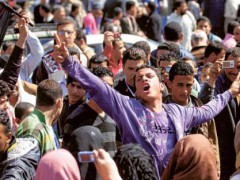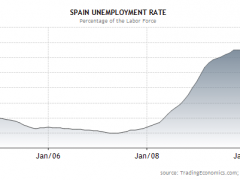-

Democracy’s Green Challenge as seen from Morocco
Would a democratic Morocco be more sustainable? Last month, Morocco saw one of its worst ecological disasters [Eng.] as tens of thousands of fish were found dead in the river Moulouya [Eng.]. Sustainable development advocates blamed a sugar factory in Zaïo (north eastern Morocco) as being responsible for polluting the […]
Author Archive
-

From Rabat to Damascus: Arab Spring Blues
Arab Spring, Act I: the seduction of straightforward revolutions. In December 2010, Mohammed Bouazizi, a street vendor in Sidi Bouzid, Tunisia, set fire to himself to protest against his treatment by the authorities when he tried to get back the wares they had confiscated. . This self-immolation in the name […]
-
The Mauritania/China fisheries deal: My Moroccan viewpoint
Re-socialization the Arab Spring The Arab Spring did not start with political claims. The Sidi Bouzid events were sparked by socio-economic factors, and it was only when Ben Ali killed many protestors[1] that the social uprising took on a regime-change objective. With hindsight, however, all the other events of the […]
-

Cash Back: North African Migration to Turkey
Usually, when we speak about “emigration destinations” for North African countries, we mean Europe, USA, Canada, and some Gulf countries. As the borders of these countries become more and more hermetically sealed, young migration candidates from North Africa have to choose between classic-but-risky clandestine migration or new opportunities in their […]
-
After the Tunisian Revolution: Redefining Moderate Regimes
Recent events in Tunisia call for a redefinition of both what the West considers moderate regimes and the governance model these countries should choose. After 9/11, U.S foreign policy entered an era of confusion: the list of former anti-Soviet allies covered a large spectrum of regimes, political and religious-ideology groups. […]
